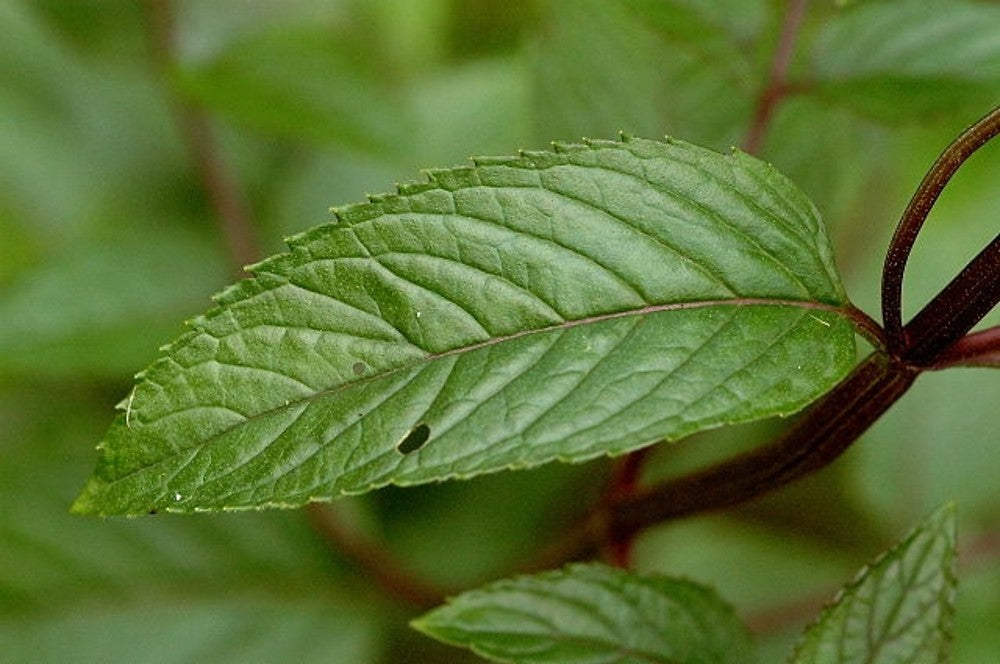نعناع السبير الحار
نعناع السبير الحار
Couldn't load pickup availability
mentha spicata spaermint
Mentha spicata, commonly known as Spearmint or Spärmint, is a delightful herb known for its refreshing flavor and aromatic leaves. Here’s a guide on how to grow Mentha spicata ‘Spearmint’:
1. Site Selection: Choose a location with partial to full sunlight for your Spearmint. It can tolerate some shade but prefers sunnier conditions.
Ensure well-draining soil to prevent waterlogging.
2. Soil Preparation: Use a rich and loamy soil with a slightly acidic to neutral pH (around 6.0 to 7.0). Incorporate organic matter like compost to improve soil fertility and structure.
3. Planting: Spearmint is typically grown from cuttings or root divisions. Purchase nursery-bought plants or obtain cuttings from a reliable source. Space multiple plants about 18 to 24 inches apart to allow for spreading.
4. Watering: Keep the soil consistently moist, especially during hot and dry periods. Spearmint appreciates regular watering, but avoid waterlogged conditions.
5. Mulching: Apply a layer of organic mulch around the plants to retain moisture, suppress weeds, and regulate soil temperature.
6. Fertilizing: Spearmint generally doesn’t require heavy feeding. A balanced, slow-release fertilizer in spring is usually sufficient.
Avoid excessive nitrogen, as this can promote lush growth at the expense of flavor.
7. Pruning: Regularly prune Spearmint to maintain its shape and encourage bushiness.
Trim the plant after flowering to promote new growth and to prevent it from becoming too leggy.
8. Winter Care: Spearmint is often hardy, but mulching around the base can provide winter protection, especially in colder climates.
Trim back any dead or damaged growth in late winter or early spring.
9. Pest and Disease Control: Spearmint is generally resistant to many pests and diseases. However, keep an eye out for issues like aphids or rust.
Treat pests promptly with insecticidal soap or neem oil.
10. Harvesting: Harvest Spearmint leaves as needed once the plant is well-established. Trim the stems with sharp scissors or pruning shears.
The flavor is most intense just before the plant flowers.
11. Companion Planting: Spearmint can be used as a companion plant to repel certain pests from nearby vegetables or ornamental plants.
12. Propagation: Propagate Spearmint through division or by taking cuttings. Division is best done in the spring. Allow cuttings to root in well-draining soil before transplanting.
Keep in mind that Spearmint has a spreading growth habit and can become invasive. Consider growing it in containers or use barriers to control its growth. Regular harvesting and pruning will help keep the plant in check and encourage fresh growth.
Share



